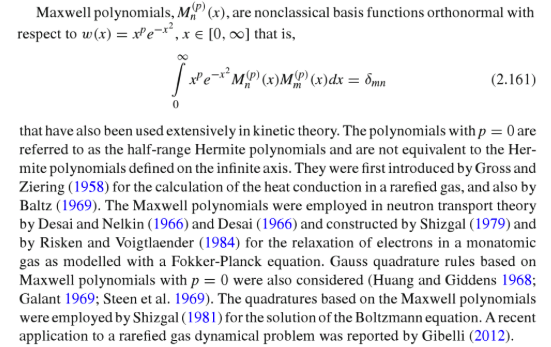Is there a way to get a clean presentation of the orthogonal polynomials w.r.t. the Maxwell distribution https://en.wikipedia.org/wiki/Maxwell%E2%80%93Boltzmann_distribution ? If you separate the problems to an even and odd problems, the even part of the orthogonal basis behaves nice enough: one simply takes the quotient of the odd Hermite polynomials by x (since the Maxwell distribution is given by $Cx^2\exp(-x^2/2)$, and Hermite polynomials are orthogonal w.r.t. $\exp(-x^2/2)$) ; as for the even part, I described a semi-solution in the comment below. However, I have no ide how the two parts interact.
The analog question for Laguerre polynomials (i.e. when one moves from the measure $\exp(-x)$ to the measure $C_{\alpha}x^{\alpha}\exp(-x)$ yields a very satisfying result in the form of generalized Laguerre polynomials. Due to the relation between Laguerre polynomials and Hermite polynomials, I'd expect something similar here.

